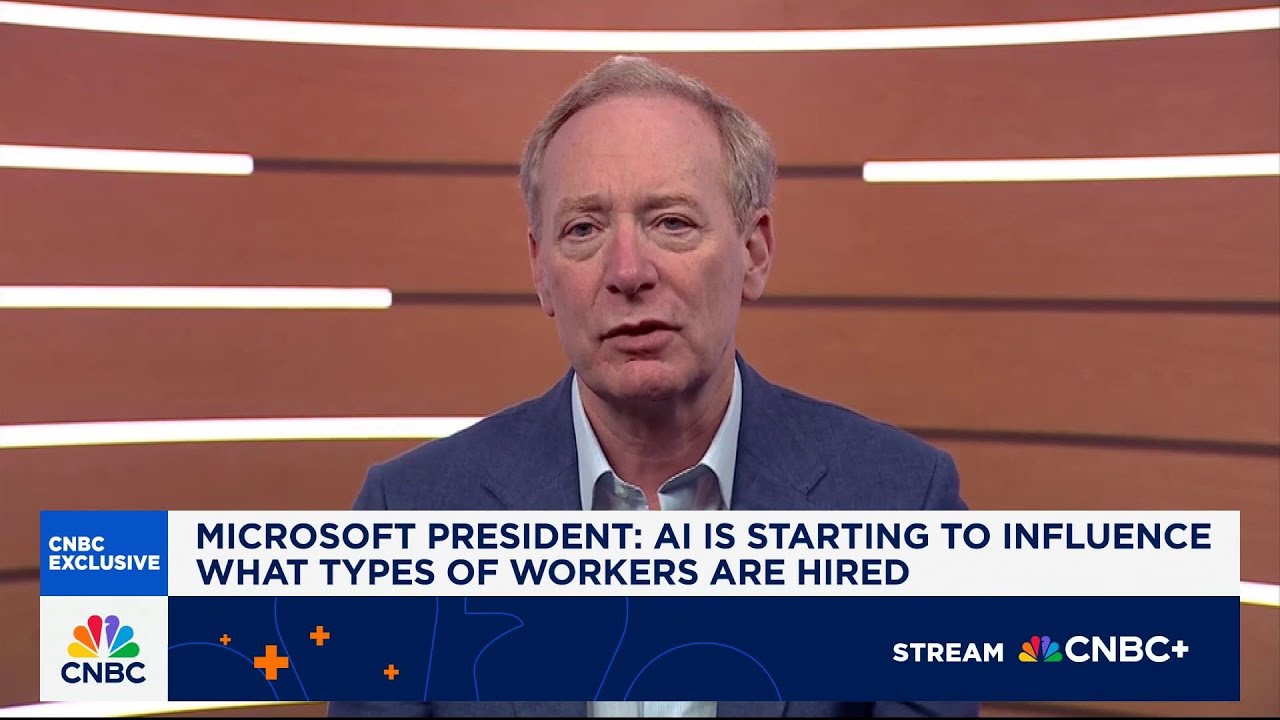Microsoft President Brad Smith highlighted the company’s $4 billion investment to prepare the workforce for the AI era by promoting AI education, skill development, and thoughtful use of AI tools. He emphasized that while AI is beginning to influence hiring by prioritizing AI proficiency, employers also value curiosity and adaptability to help workers thrive in an evolving AI-driven economy.
Microsoft President Brad Smith recently discussed the company’s commitment to preparing the workforce for the AI era, highlighting a $4 billion investment over five years. This funding will support education initiatives, collaboration on AI research, and the development of AI skills. Smith emphasized the importance of adapting education to incorporate AI, encouraging students to learn how to use AI tools effectively rather than fearing cheating or misuse. He believes that integrating AI into learning will ultimately enhance educational outcomes.
Smith also addressed the challenge of helping people use AI thoughtfully, stressing the need to teach when to rely on AI as a tool and when to think independently. This balance is crucial to ensure that AI serves as an aid to human cognition rather than a replacement. Microsoft aims to foster this mindset through its educational programs and partnerships, promoting critical thinking alongside AI proficiency.
Regarding employment, Smith noted that AI has not yet caused widespread layoffs at Microsoft or across the tech industry. However, possessing AI skills is increasingly becoming a key factor in hiring decisions. Certain sectors, such as call centers and customer support, are experiencing early productivity gains from AI that are reducing workforce numbers. Overall, AI is beginning to influence the types of workers companies seek, with a premium placed on those who can effectively leverage AI technologies.
Smith also highlighted the broader economic implications of AI, warning of a potential new divide between those with AI skills and those without. Using data from LinkedIn and academic research, Microsoft has observed that credentials demonstrating AI proficiency are becoming as valuable as traditional software skills were two decades ago. Familiarity with tools like Microsoft Copilot and ChatGPT is now helping job seekers stand out in the labor market.
Ultimately, Smith underscored that beyond specific AI skills, employers value traits such as curiosity and the ability to learn new things. These qualities will remain essential as AI continues to evolve and reshape the workforce. Microsoft’s investment and research efforts aim to support workers in developing both technical skills and the adaptability needed to thrive in an AI-driven economy.
